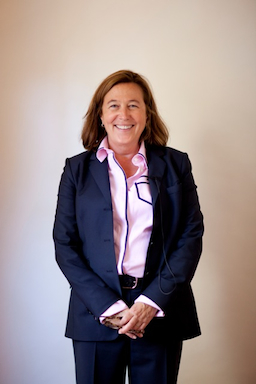 Viewers of CNN's "The Next List," which Sunday featured Dr. Leslie Saxon and her Center for Body Computing at the University of Southern California, got both a lesson in what is possible in medicine today and a preview of what's coming in the near future.
Viewers of CNN's "The Next List," which Sunday featured Dr. Leslie Saxon and her Center for Body Computing at the University of Southern California, got both a lesson in what is possible in medicine today and a preview of what's coming in the near future.
The half-hour program highlighted some of the work Saxon, chief of cardiovascular medicine at USC's Keck School of Medicine, is doing at the seven-year-old Center for Body Computing, highlighted some vendors certainly familiar to the MobiHealthNews audience and explained practical and potential uses for digital technology.
Notably, Dr. David Albert, founder of AliveCor, is shown inside USC's Galen Center basketball arena, snapping his ECG case onto the back of an iPhone. "I can take this app and simply apply my fingers to the back, and what you get is, is you're seeing my electrocardiogram," Albert said.
Later, Saxon is seen playing tennis, or, as she called it, "lifeball," because Saxon is tracking her own activity with what she said was the very first commercial copy of the Shine activity monitor Misfit Wearables. (Misfit CEO Sonny Vu used the stage at Saxon's Body Computing Conference last fall to announce plans to take online preorders for the product on the Kickstarter crowdfunding platform.)
Vu appears as well, demonstrating the Shine. "Basically you just shake it and it tells you how are you doing," he said. "We make it so simple that all you have to do is lay it on the phone. That's it, and the data transfers," Vu said of the Shine, which syncs with a mobile app when placed on an iPhone's screen.
The show's host, CNN Chief Medical Correspondent Dr. Sanjay Gupta, worked out while wearing a Zephyr BioHarness sensor that measured his heart and breathing rates.
A patient with heart failure was monitored at home with a wireless St. Jude Medical device for measuring left atrial pressure. The Center for Body Computing helped St. Jude create the technology, including a companion app for remote monitoring, and St. Jude ran a clinical trial at USC.
This, to Saxon, really demonstrated the potential of her academic R&D center. "We have a center where we don't just talk about stuff, we develop it," Saxon said Monday in an interview with MobiHealthNews. "To me, this was about showing what a university can do in areas like these."
That means demonstrating these breakthroughs in the real world. On the CNN show, Saxon talked about how she has started sending patients home from the hospital with a Shine and a list of prescribed activities. "I've also been thinking about [the Shine] for patient applications, just telling a patient, 'All you have to do is light up all these lights on the disc when you go home from the hospital,'" Saxon said.
She told MobiHealthNews that assuring post-discharge heart patients stick to an exercise regimen is becoming key to preventing readmissions – and saving hospitals money, since Medicare no longer reimburses for readmissions within 30 days of initial discharge for congestive heart failure, heart attack and pneumonia.
Of course, digital technology is not just for the very sick. Saxon has been working with the USC athletic department and even the National Football League to monitor the body conditions of elite athletes.
CNN accompanied Saxon to ProActive Sports Performance, a Westlake Village, Calif., training center that draws many pro athletes, where Gupta interviewed Cleveland Indians first baseman Nick Swisher. "Everything is getting more and more precise [in terms of data and measurement], which can help you to either elongate your career or make it the best it can be," Swisher said.
"Why does an elite, gifted athlete need to get so badly hurt and maybe then completely out of the game and then have to rehab?" Saxon wondered in front of the CNN cameras. "We really want to get to them, and use this stuff to figure out how to keep at it longer."
CNN also included a shot of an iPad running a Center for Body Computing app called "Experience Evolution: Habit Tracking for Athletes." Saxon explained to MobiHealthNews that the Center for Body Computing is testing this app for both wellness and athletics purposes and hopes to have it ready for market within the next year.
Really, though, Saxon was most excited about using the national TV platform to shatter some people's preconceived notions about how medicine should be practices. "For me, it's about showing the world what you can do when you create products like these," Saxon said Monday. "I don't think people know the possibilities yet. Medicine can be like all your other digital tools, involved in every aspect of your life."
For more, read Saxon's guest post on "The Next List's" blog.



















